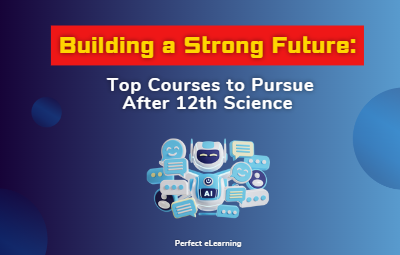

Are you a commerce enthusiast wondering about the best course options after completing your 12th grade? The journey beyond graduation is an exciting phase, offering numerous opportunities to shape your future career.
Popular Course Options for Commerce Enthusiasts
1. Bachelor of Commerce (B.Com)
The Bachelor of Commerce, or B.Com, is one of the most popular courses for commerce enthusiasts. It provides a strong foundation in the field of commerce, equipping students with essential knowledge and skills for a successful career. B.Com offers various specializations such as Accounting, Finance, Marketing, and Economics, allowing students to delve deeper into their areas of interest.
2. Bachelor of Business Administration (BBA)
If you aspire to take up managerial roles in the corporate world, pursuing a Bachelor of Business Administration (BBA) can be a great choice. This course focuses on developing business and management skills, offering comprehensive knowledge about organizational behavior, marketing, finance, and entrepreneurship. BBA graduates often find rewarding careers in areas like marketing, human resources, and consulting.
3. Chartered Accountancy (CA)
Chartered Accountancy (CA) is a highly esteemed and challenging course for commerce enthusiasts who have a strong aptitude for accounting and finance. Becoming a Chartered Accountant opens up a wide range of career opportunities in finance, taxation, audit, and consultancy. The CA course demands dedication, perseverance, and a deep understanding of accounting principles and financial regulations.
4. Company Secretary (CS)
For those interested in corporate governance and legal compliance, pursuing a Company Secretary (CS) course can be a rewarding choice. As a Company Secretary, you would play a crucial role in ensuring the smooth functioning of a company, handling legal and regulatory matters. CS professionals have excellent career prospects in both public and private sectors, serving as advisors to top management.
5. Cost and Management Accountancy (CMA)
Cost and Management Accountancy (CMA) is a specialized course that focuses on strategic cost management, financial analysis, and decision-making. CMAs are in high demand, particularly in manufacturing, financial services, and consultancy sectors. With their expertise in cost control and financial planning, CMAs contribute significantly to the success of organizations.
Emerging Course Options for Commerce Enthusiasts
1. Data Analytics and Business Intelligence
The era of big data has brought about a surge in demand for data analytics professionals. Data analytics involves extracting insights and patterns from large datasets to drive informed decision-making. By pursuing a course in data analytics and business intelligence, you can acquire skills in data visualization, statistical analysis, and data mining, opening doors to exciting careers in industries such as finance, marketing, and e-commerce.
2. Digital Marketing
In the digital age, businesses rely heavily on online marketing strategies to reach their target audience. Digital marketing encompasses various techniques like search engine optimization (SEO), social media marketing, content marketing, and paid advertising. By specializing in digital marketing, you can develop skills in online campaign management, analytics, and content creation, making you a valuable asset for companies across industries.
3. Financial Technology (FinTech)
The intersection of finance and technology has given rise to the rapidly growing field of Financial Technology, or FinTech. FinTech combines finance, innovation, and technology to revolutionize financial services. By pursuing a course in FinTech, you can gain insights into areas such as blockchain, cryptocurrency, mobile banking, and algorithmic trading, paving the way for exciting career opportunities in the financial sector.
4. Entrepreneurship and Start-up Management
If you have a passion for innovation and a desire to build your own venture, entrepreneurship can be a fulfilling career path. Pursuing a course in entrepreneurship and start-up management equips you with the knowledge and skills needed to navigate the challenges of starting and scaling a business. You will learn about ideation, business planning, funding, and marketing, setting a strong foundation for entrepreneurial success.
Conclusion
The journey beyond graduation offers a plethora of course options for commerce enthusiasts, each with its own unique advantages and career prospects. It's crucial to explore these options, keeping in mind your personal interests, market demand, and future goals. Whether you choose a traditional commerce course like B.Com or venture into emerging fields like data analytics or digital marketing, make an informed decision that aligns with your passions and aspirations. Embrace the opportunities that lie ahead, and remember that continuous learning and adaptation are key to success in today's dynamic job market.
Frequently Asked Questions (FAQs)
Q: What is the best course after 12th for commerce students?
A: The best course after 12th for commerce students depends on individual interests and career goals. Popular options include B.Com, BBA, CA, CS, and CMA. However, emerging fields like data analytics, digital marketing, FinTech, and entrepreneurship also offer exciting opportunities.
Q: Are commerce courses suitable for students with no background in commerce?
A: Yes, commerce courses are designed to provide a comprehensive understanding of commerce-related subjects, even for students without a commerce background. However, it's important to assess your aptitude and interest in commerce subjects before choosing such courses.
Q: Which course offers better job prospects: B.Com or BBA?
A: Both B.Com and BBA offer promising job prospects, but the choice depends on your career aspirations. B.Com provides a broader foundation in commerce, while BBA focuses on business administration and management roles. Consider your interests and long-term career goals when making a decision.
Q: What skills are essential for a career in data analytics?
A: To excel in data analytics, you need skills in data manipulation, statistical analysis, data visualization, programming (Python, R, SQL), and critical thinking. Additionally, strong communication and problem-solving skills are valuable in interpreting and presenting data-driven insights.


